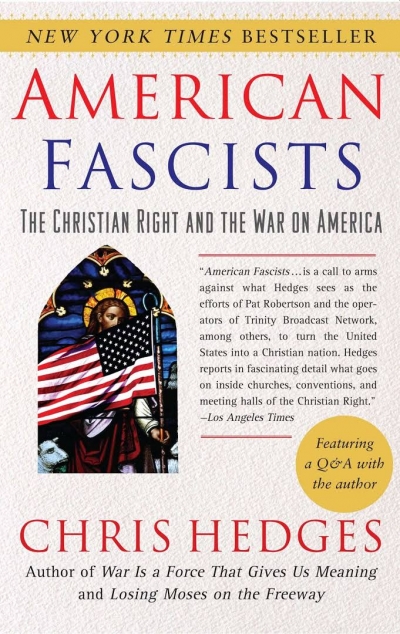



After years of precariously trying to balance the conflicting political demands of his American masters and Pakistan’s Muslim people, events in the last month appear to have pushed Pakistani dictator General Perwez Musharraf (pic) to the verge of being toppled. On July 26, news emerged that fellow generals had advised Musharraf to make a “graceful exit” from power.
When Turkey’s secular elites, led by the military, declared war on the ruling AK Party earlier this year, in order to prevent foreign minister Abdullah Gul from being elected president, it appeared that the “Islamist” AK Party was going to go the same way as the Refah Party led by Necmettin Erbakan a decade ago.
The fact that the US has suffered a massive defeat in Iraq is no longer disputed by any but the most slavish apologists for the Bush regime. As the reality of the US’s position first became apparent, many Western commentators went through a process of retroactive redefinition of the justifications and objectives of the war, to try ways of making the war look less disastrous that it actually is. Now few even try that.
Pakistan will turn sixty on August 14, but one would be hard-pressed to detect any sign of maturity in its political or social dealings. Successive rulers—civilian and military—have stunted its growth like a slave permanently shackled in a cage. All have also faithfully served foreign masters, while lining their own pockets at the expense of the country’s impoverished masses.
One of the things we try to do in this column is to confront false impressions head-on. This month, we address the myth that America is trying to “spread democracy” in the Islamic East, although the use of this argument has been declining in almost perfect proportion to the increasing military failures of the armies of the US and its allies – particularly zionist Israel – wherever they have tried to pursue their interests through war. Listen to the speeches of the highest officials of imperialism in America, and the change of tone is inescapable.
One little-noticed story in the international media last month was the reported arrest and interrogation of 40 men in Egypt, allegedly for having links with al-Qa’ida. According to reports first carried in Al-Masry al-Yom, an independent Egyptian daily newspaper, the men were actually arrested in April but news of the arrests was deliberately not released. Subsequent media investigations have unearthed further details, many of them inconsistent.
Few countries pay as much attention to their deputy prime ministers as Malaysians do. The number two spot in the government is often fought for with a fervour stronger than for the PM’s post. When not being contested, the person occupying it had better get every part of his act clean, at least in public. The slightest involvement in any controversy will be the road to resignation, or, in the case of Anwar Ibrahim, unceremonious dismissal and arrest.
On the eve of Turkey’s parliamentary elections, Hurriyet, a daily paper in Ankara, predicted that the ruling Justice and Development Party (AKP) would not get more than 30 percent of the popular vote. In the election on July 22, the AKP increased its vote by 12 percentage points to 46.5 percent from a crowded field of 14 political parties and 700 independent candidates. Despite increasing its share of the electorate’s votes, the AKP’s seats declined slightly to 341 from the 354 it had had in the outgoing parliament of 550.
In the past decade, the US has been able to replace France as the most influential foreign power in former French colonies such as Morocco, Algeria and Tunisia. Given the US’s status as the “world’s sole superpower” and its ruthless determination to entrench and exploit that status, it is not strange that France lost its self-confidence as a world power and played second fiddle to Washington even in its own former colonies.
The pressure on the Sudanese government to allow a UN peace force into western Darfur to set the basis for a political settlement – similar to southern Sudan’s right to secede after a referendum – is intensifying. The latest push comes from the UN and from a joint effort by Britain and France.
It was widely expected that the reconciliation-congress chaired by the ineffectual transitional government, headed by the former warlord and nominal president Abdullahi Yusuf, would fail almost as soon as it began on July 15. What was not expected was China’s decision to secure a contract with the nominal head. Not only is there no chance to find and extract oil, because of the endemic unrest all over the country, but China’s expected involvement in the federal government’s schemes is bound to contribute to the violence.
The siege at the Lal Masjid in Islamabad, which ended with a massacre of its occupants on July 10-11, has been widely portrayed as part of a global war between pro-Western moderation and extremist terrorism. Here, DR PERWEZ SHAFI of the Institute of Contemporary Islamic Thought (ICIT) locates it more accurately in the context of a different historical trajectory.
In June 2007, the Islamic Centre of England hosted a conference on “Proximity amongst Islamic schools of thought: a necessity for Muslims in the contemporary era” (see Crescent International, July 2007). This is the paper presented IQBAL SIDDIQUI, a researcher at the Institute of Contemporary Islamic Thought (ICIT) and editor of Crescent International.
1Perhaps never before in history has a self-declared superpower fallen from glory as precipitously as has the US. In less than 20 years it has gone from a hyperpower to being a spent force unable to deal even with such backward societies as Afghanistan and Iraq.
American Fascists: The Christian Right and the War on America by Chris Hedges. Pub: Free Press, New York, 2007. Pp: 272. Hbk: $25.00

